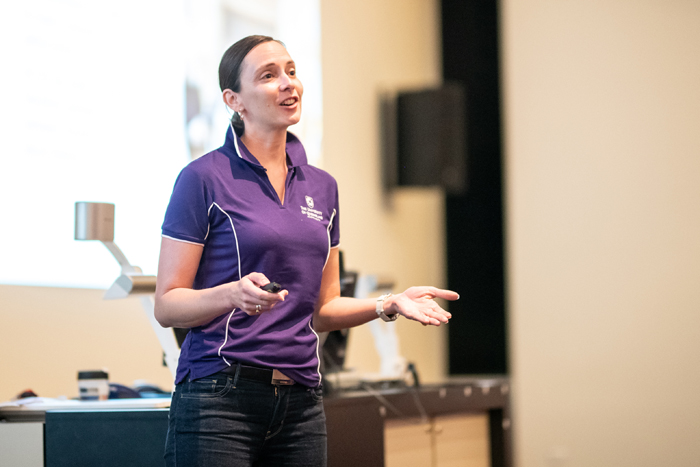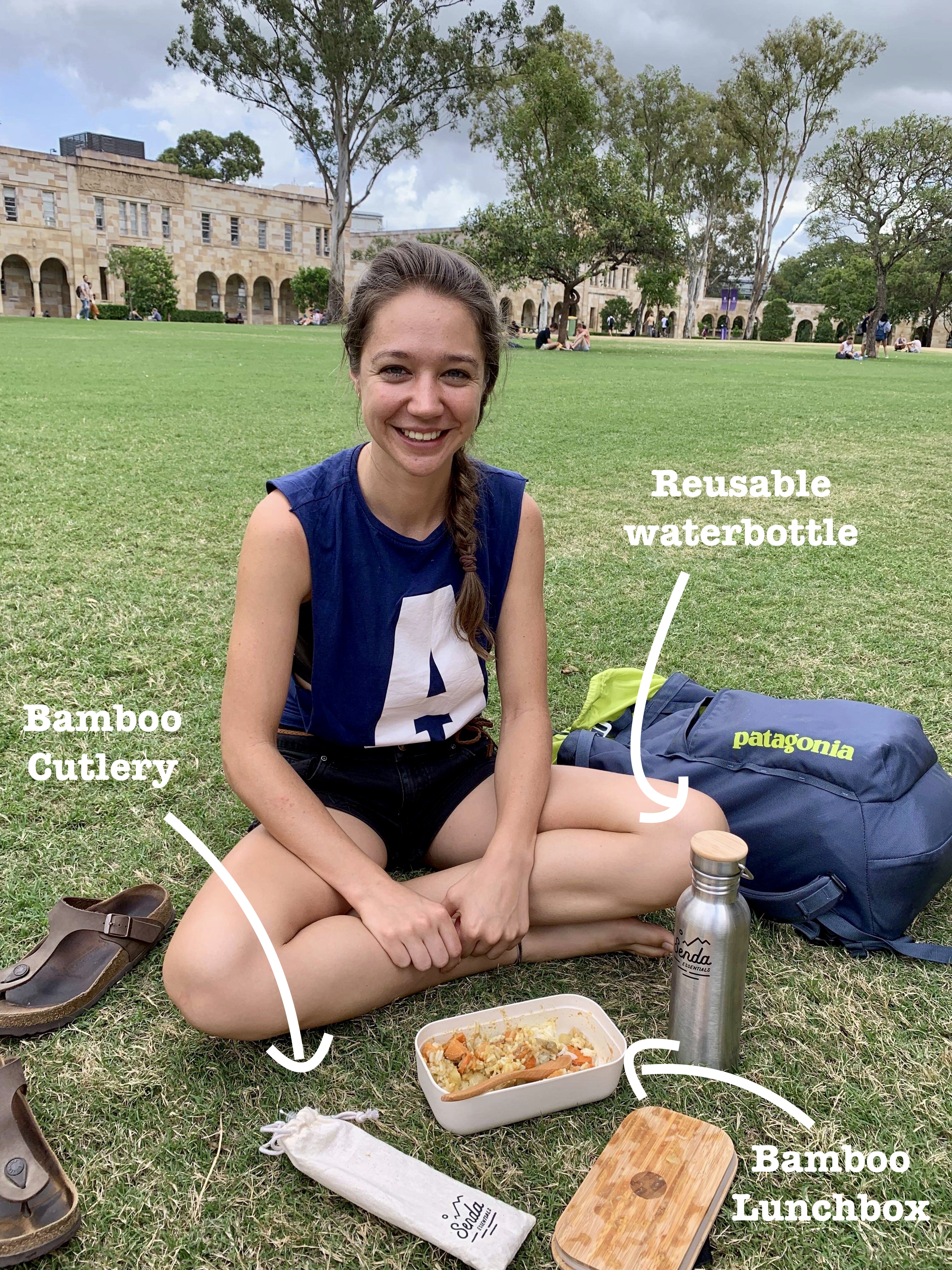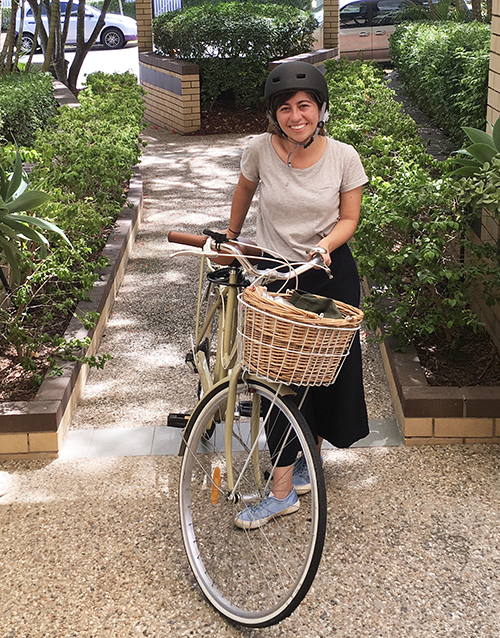Gone are the days when sustainability was just a concept for ‘greenies’, it now has global recognition and buy-in from international governments and citizens. Strategies for a sustainable future are proving to be an important issue now to a large percentage of the Australian population.
According to the Lowy Institute Poll, 84 per cent of Australians support the statement that “the government should focus on renewables, even if this means we may need to invest more in infrastructure to make the system more reliable.”

In a business sense, we’re constantly battling a ‘red’ ecological debt – whereby we overspend our natural capital, to the point where we use more ecological resources than the planet can renew in an entire year. In Australia, we had already ‘overspent’ our ecological budget by March 31 this year.
Business sustainability expert Dr Belinda Wade, a researcher and lecturer at The University of Queensland Business School shares some insights, along with two students, Anna Fueldner and Claudia Navarrete Rojas, as to how individuals and businesses can incorporate sustainability into their day-to-day lives and long-term planning.
How do you incorporate sustainable practices in your own day-to-day life?

Anna: “I usually carry a backpack with me filled with my reusable items to avoid single-use plastics. My essentials are my keep cup, a bamboo cutlery set including (metal) straws, a water bottle and most of the time I also have a lunch box with me.”
Belinda: “At home, my sustainable practices include bikes or walking where possible rather than the car, turning off lights, recycling, avoiding packaging and unnecessary purchases. I also centre my family’s food choices around vegetables rather than meat. We also keep chickens, which are not only great pets, but dispose of food waste while producing eggs.”
What are some examples of well-known companies that have incorporated sustainable planning, and what have they done differently?
Claudia: “A great example is Fuji Xerox Australia, which developed technological capabilities to create an ‘eco manufacturing centre’ to re-manufacture product parts that otherwise would have ended in the landfill.”
Anna: “My favourite sustainable company is the outdoor brand, Patagonia. They were one of the first fashion brands to analyse their supply chain properly and to switch to sustainable cotton. They are also actively supporting environmental activism, and are on the forefront of social sustainability, with an innovative approach for their employees.”
For businesses with a limited budget, what are some affordable ways they can incorporate sustainable practices?
Belinda: “All businesses, can increase their sustainability by examining their activities under the key areas of water and energy usage, and waste generation.
“Resource usage represents a significant annual expense to many companies and has sustainability implications for the natural environment. Knowing where resources are used and what waste is generated allows a company to target investments, behaviour-change programs or evaluate the potential to apply circular principles to their operation.
"Sustainability also needs to be embedded in the company core culture, values and strategy."
We think of sustainability as helping to ‘save the earth’ but can sustainability also be a business advantage?
Anna: “Yes! Businesses are facing risks by not adapting to more sustainable business practices. Apart from an increasing consumer awareness and the demand from society to shift towards more sustainable practices, I believe that consumers as well as governments will increasingly put pressure on businesses and also reward companies who act responsibly.”
Belinda: “Companies have the responsibility to be sustainable, but they will also miss significant opportunities for new products and services if they fail to design their strategy to incorporate sustainability.”
Claudia: "Definitely, sustainability should be the new way of doing business. It gives organisations the competitive advantage of creating shared value for society and the environment while still making and even increasing profit."
Where do businesses need to start if they want to create or review their sustainability plan?
Anna: "Businesses need to start looking at their own actions within the company, but they also need to be aware of what their suppliers do. They need to re-evaluate their core values and assess their own behaviour within the company at every level.
"In order to implement a sustainability plan, the changed values need to reach every level of the company, including the top management and employees."
Belinda: "If resources allow, a great place to progress sustainability is the development of a yearly sustainability report incorporating targets for further improvement. The company can also consider joining the UN Global Compact to examine how they can contribute to the Sustainable Development Goals."
Belinda, how is your research helping businesses with their sustainable planning?
“I currently have several research projects underway on sustainability topics ranging from the circular economy, capabilities for decarbonisation and the strategic impact of environmental regulations.
"One current area of research is examining the opportunities to apply circular economy principals – that is, a business model that moves away from ‘make, use and dispose’ to one that forward plans a products future use, including re-use and recycling.”

Anna and Claudia, what areas of sustainability research are you interested in, and why?
Claudia: “The areas of sustainability research I'm most interested in are innovation for sustainable business models, and the adoption of new technologies to manage organisations' risks and opportunities in strategic planning. Because doing business as usual is not a sustaining, feasible option in the near future.”
Anna: “I am interested in reducing waste, recycling and finding alternative solutions for plastic packaging. We have such a tremendous waste problem and no cohesive and assertive solution yet.”



